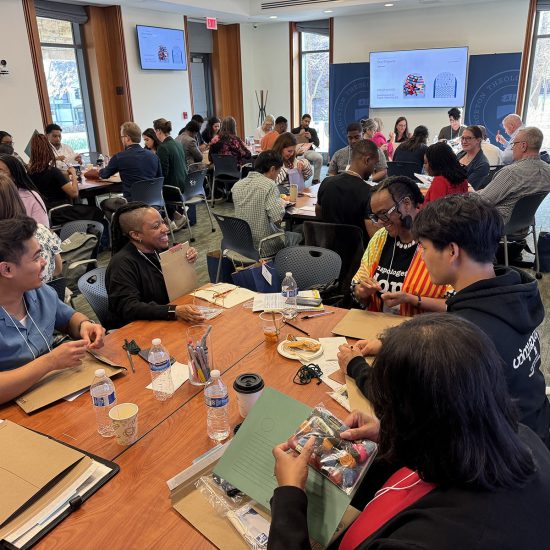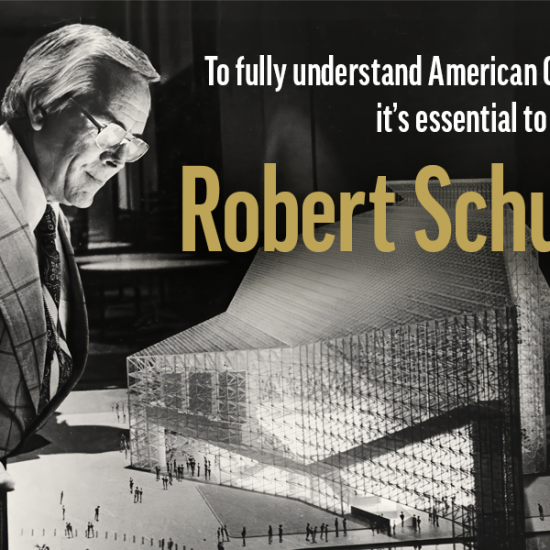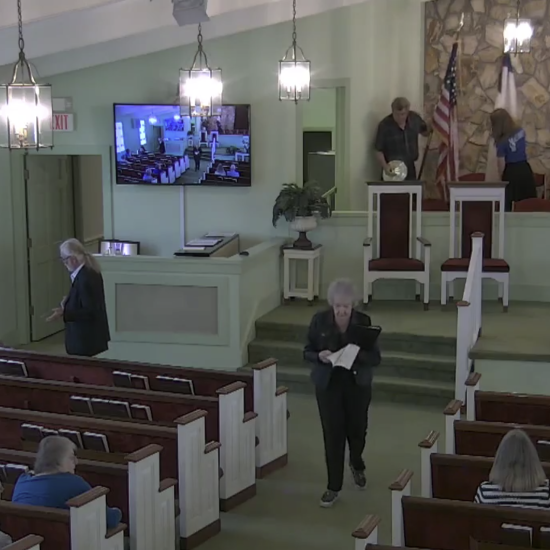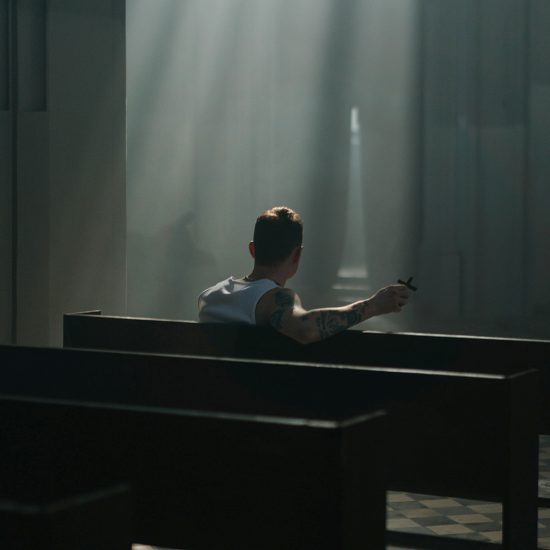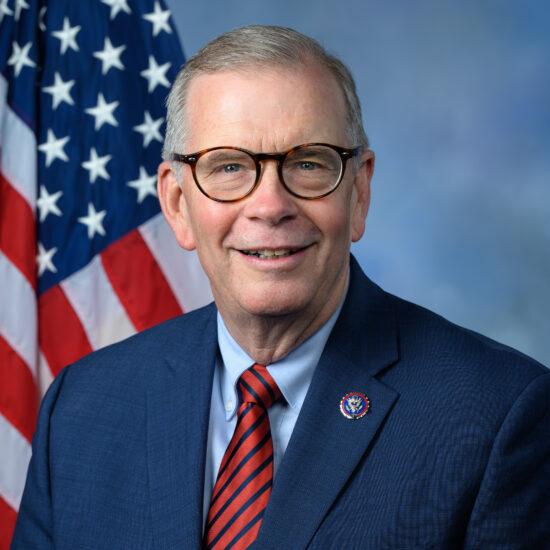NASHVILLE, Tenn. (ABP) — A Baptist layman with an engineering background might not seem a logical choice to lead a spiritual-formation ministry run by United Methodists. Not surprisingly, the path that led Johnny Sears to Upper Room Ministries in Nashville, Tenn., took some unexpected turns.
Sears, 35, took over July 26 as director of Upper Room's Academy for Spiritual Formation — an ecumenical program for holistic spirituality. Academy participants meet for five days of communal prayer, study and solitude eight times over the course of two years.
In the 27 years since its formation, about 1,400 clergy and lay people have completed the two-year Academy. Numbered similar to graduating classes in college or seminary, the 31st academy is currently underway, with No. 32 — the first to be English and Spanish bilingual — due to kick off in July 2011.
Sears grew up attending a Baptist church in rural Kentucky. After graduating from college, he got a job in product design with Lexmark International in Lexington, Ky. He and his wife, Becky, moved to nearby Midway, Ky., and became involved in Midway Baptist Church.
When the church's part-time youth ministry job became vacant, Sears felt a tug he couldn't shake. He took the job and did it for three years. Not envisioning himself as a pastor, Sears wrestled with what he perceived as a call to ministry. The process led him to enroll part time at Baptist Seminary of Kentucky, a theological-education partner of the Cooperative Baptist Fellowship.
The first course he took was "Ministry as Spiritual Guidance," taught by Glenn Hinson, senior professor of church history and spirituality. Hinson is a pioneer in Baptist spirituality studies who taught previously at Southern Baptist Theological Seminary and Baptist Theological Seminary at Richmond in a career spanning 50 years.
Sears didn't know who Hinson was, but he had already been introduced to the concept of spiritual direction at a retreat offered by Youth Specialties and enlisted Rick Landon, director of Lexington's Interfaith Counseling Center and an adjunct professor at Baptist Seminary of Kentucky, as his spiritual guide.
Hinson and Landon both became mentors to Sears. Taking note of the student's interest in contemplative spirituality, they steered him toward the Academy for Spiritual Formation. Sears dropped out of seminary to go to Academy 25 in 2006-2007, using vacation time he had built up working at Lexmark.
Sears recalled in an interview that Hinson, who had been involved in the Academy since its beginning and served on its faculty, told him at the time the experience would change his life.
"People say that about all sorts of things, and it's often said flippantly," Sears said. "Little did I know, and I don't think he knew, just how dramatically it would end up changing my life over the years."
Sears said he fully intended to return to seminary, but during his time in the academy his view of calling began to change.
"By the time it was all over I had really been able to claim that I did have a vocation in ministry but it didn't have to be professional," he explained. "It didn't have to be a paid thing. I had a ministry as a layperson."
He continued to attend seminary classes, but since he no longer needed a degree he audited them. He got an opportunity to lead a retreat at what is now called the Merton Institute for Contemplative Living.
Jerry Haas, the Academy's former director, invited Sears to be part of leadership teams for events sponsored by Upper Room, an ecumenical division of the United Methodist Church's General Board of Discipleship started in 1935.
Sears led retreats at his church and earned a reputation as a "go-to guy" for spirituality. He also became proactive about taking his "ministry of presence" into the workplace.
'It kind of shifted from this idea of me trying to make my way and trying to find a calling to just being attentive to what was calling me," Sears said.
As a member of the Academy's advisory board, Sears was one of the first people to learn that Haas was moving to another job as spiritual director of The Upper Room Center for Spiritual Formation. As a search for a new full-time director of the Academy got underway, Haas suggested to Sears that he apply.
"It took me completely by surprise. I was expecting we would look for a clergy person and those types of things," he said. "I wouldn't have done that on my own. I wasn't really seeking anything. I had kind of found my niche and was doing it."
"It's ironic to me that after being convinced at one point that I had to go into professional ministry — that that was the will-of-God kind of thing — and then coming around to say, 'No, this is who I am, and I'm a lay person with a ministry' and letting go of that idea of professional ministry and then there's this invitation," Sears said. "The more I thought about it, it was if I was ever going to go into professional ministry, I couldn't imagine a better position to go into."
The Cooperative Baptist Fellowship has worked in partnership with Upper Room in the past on a small-group study titled Companions in Christ. Sears said he hopes there will be similar interaction between CBF and the Academy.
Sears said one thing on his "to-do" list is to reach out to CBF Coordinator of Congregational Formation Bo Prosser and Director of Congregational Formation Rick Bennett to begin a conversation of, "Hey, how can we further this in the Baptist world?"
"I think my roots will help with that," Sears said. "I'm a very ecumenically orientated person, but I'm a Baptist at the core."
-30-
Bob Allen is senior writer for Associated Baptist Press.

